SUMMARY
This is AI generated summarization, which may have errors. For context, always refer to the full article.
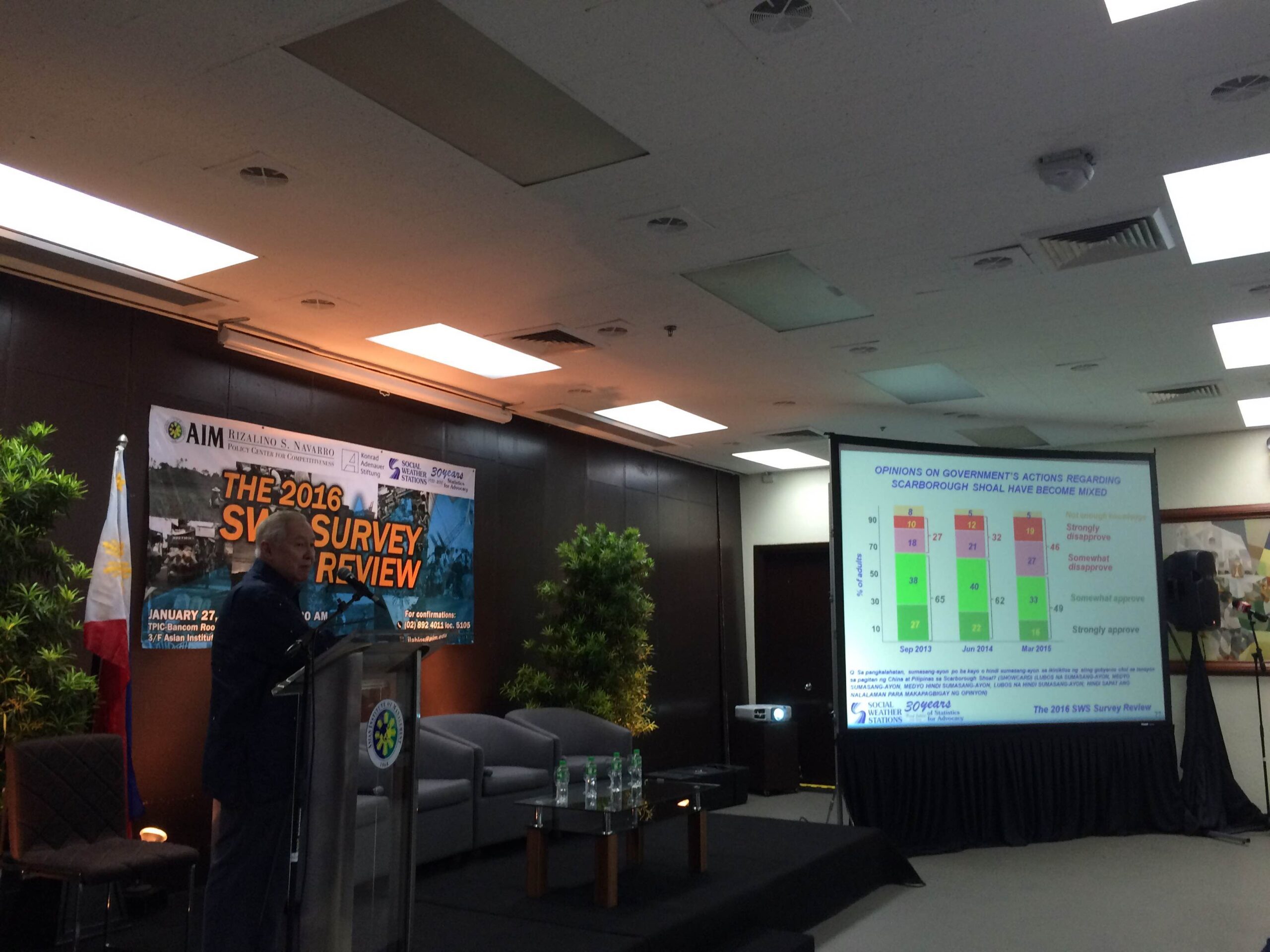
MANILA, Philippines – Filipinos are most upbeat about their lives now under the Aquino administration, Social Weather Stations (SWS) said, but despite this, its candidates for the May 2016 elections are not performing well at the polls.
“This is an exceptional year with very, very high public morale from a number of indicators,” said SWS President Dr. Mahar Mangahas in his presentation at the 2016 SWS Survey review on January 27.
The event served to give an overview of survey results over 2015 and early 2016 to an audience composed of public officials, academics and the media.
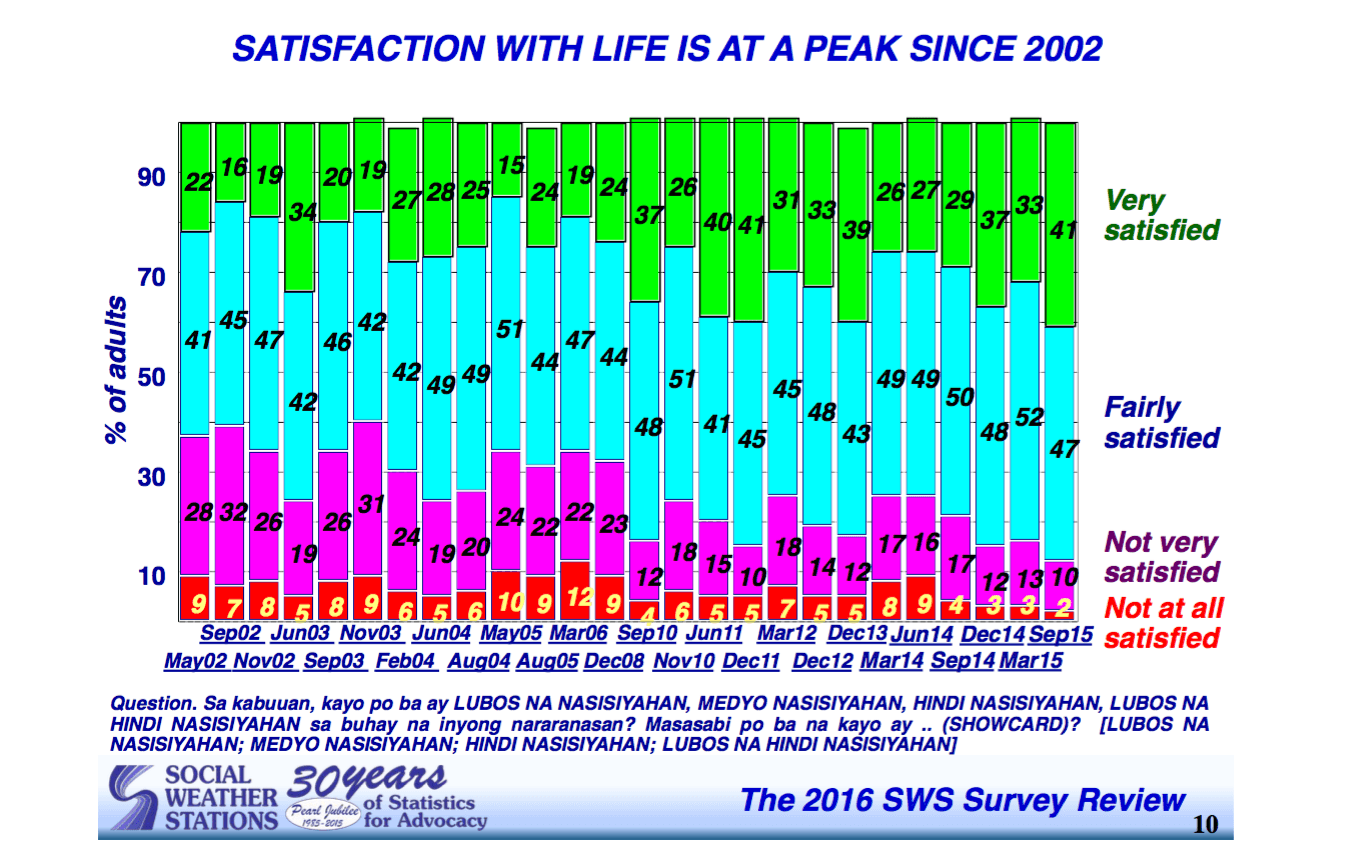
“Satisfaction with life is at a peak now since SWS started surveying the topic in 2002, Net optimism is at +40 as of early December which is an all time high, and not only that the optimism has been growing and growing and it has not abated,” Mangahas said.
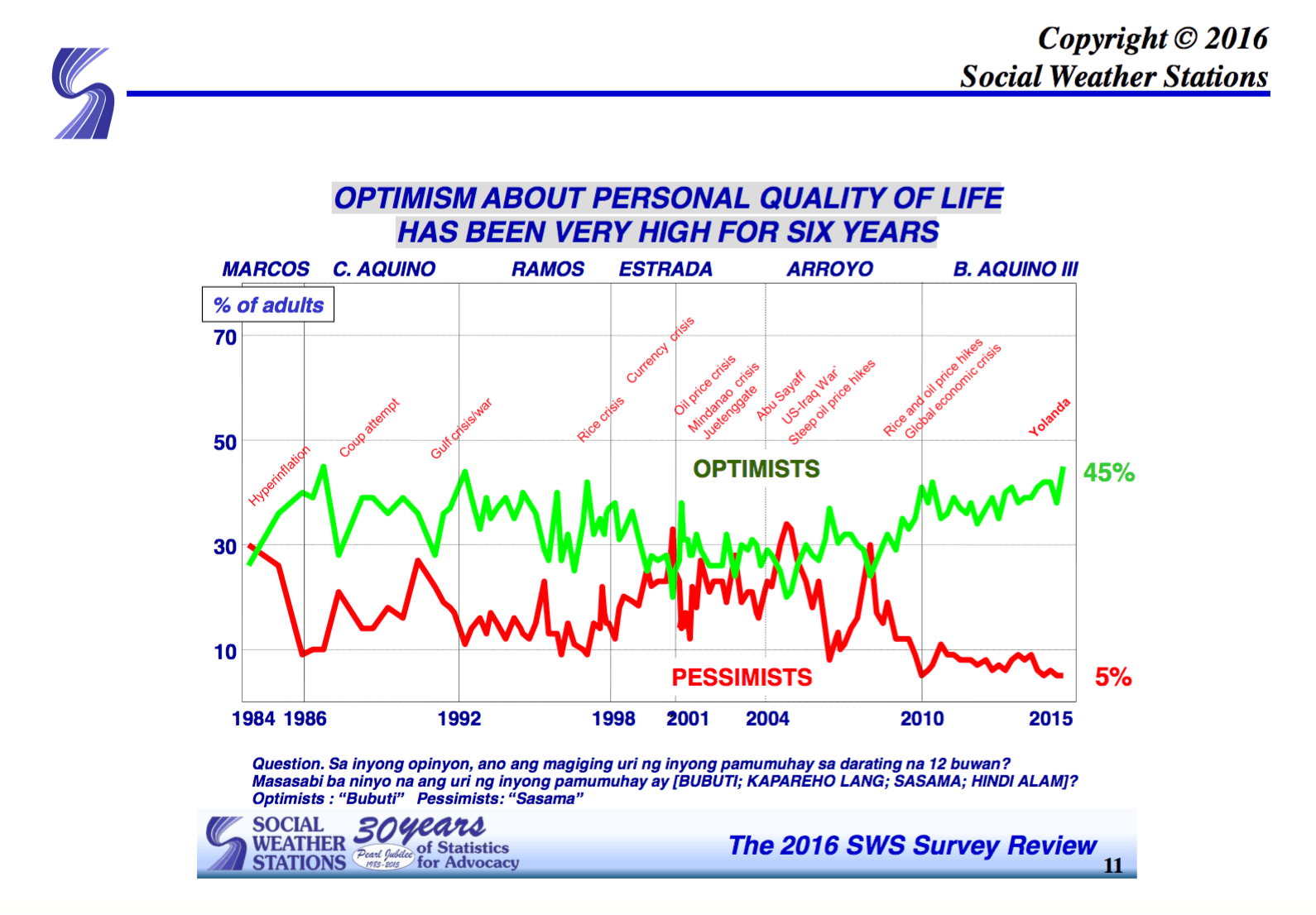
He added that the upward trend started in 2009, a year before Aquino was elected president.
Mangahas also pointed out that optimism about the economy has also been very high. “For the past 6 years we’ve had more optimists than pessimists in the economy,” he said.
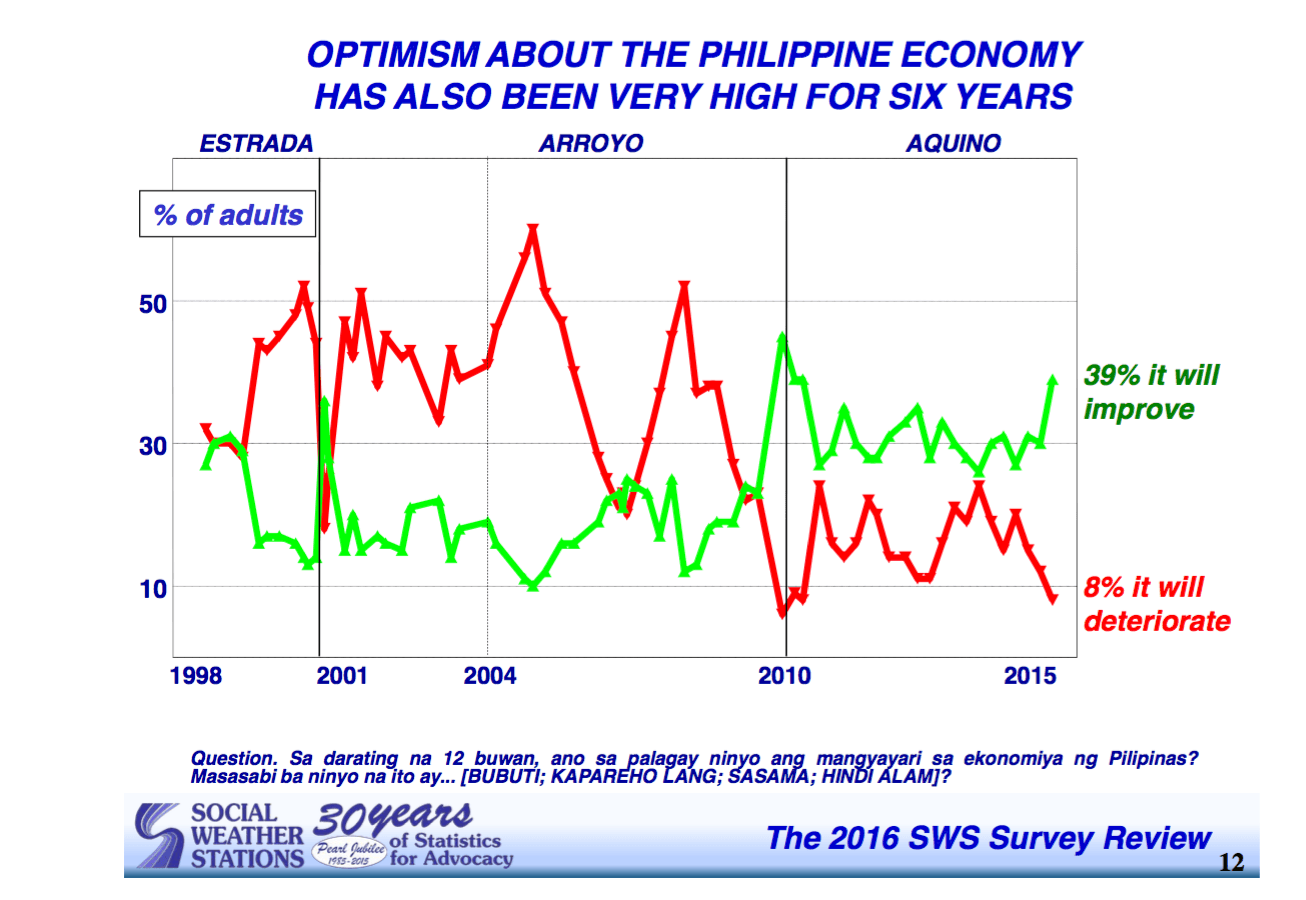
Mangahas also said that based on surveys, “the national administration as a whole for the last 6 years is head and shoulders above all the previous administrations” in terms of net satisfaction.
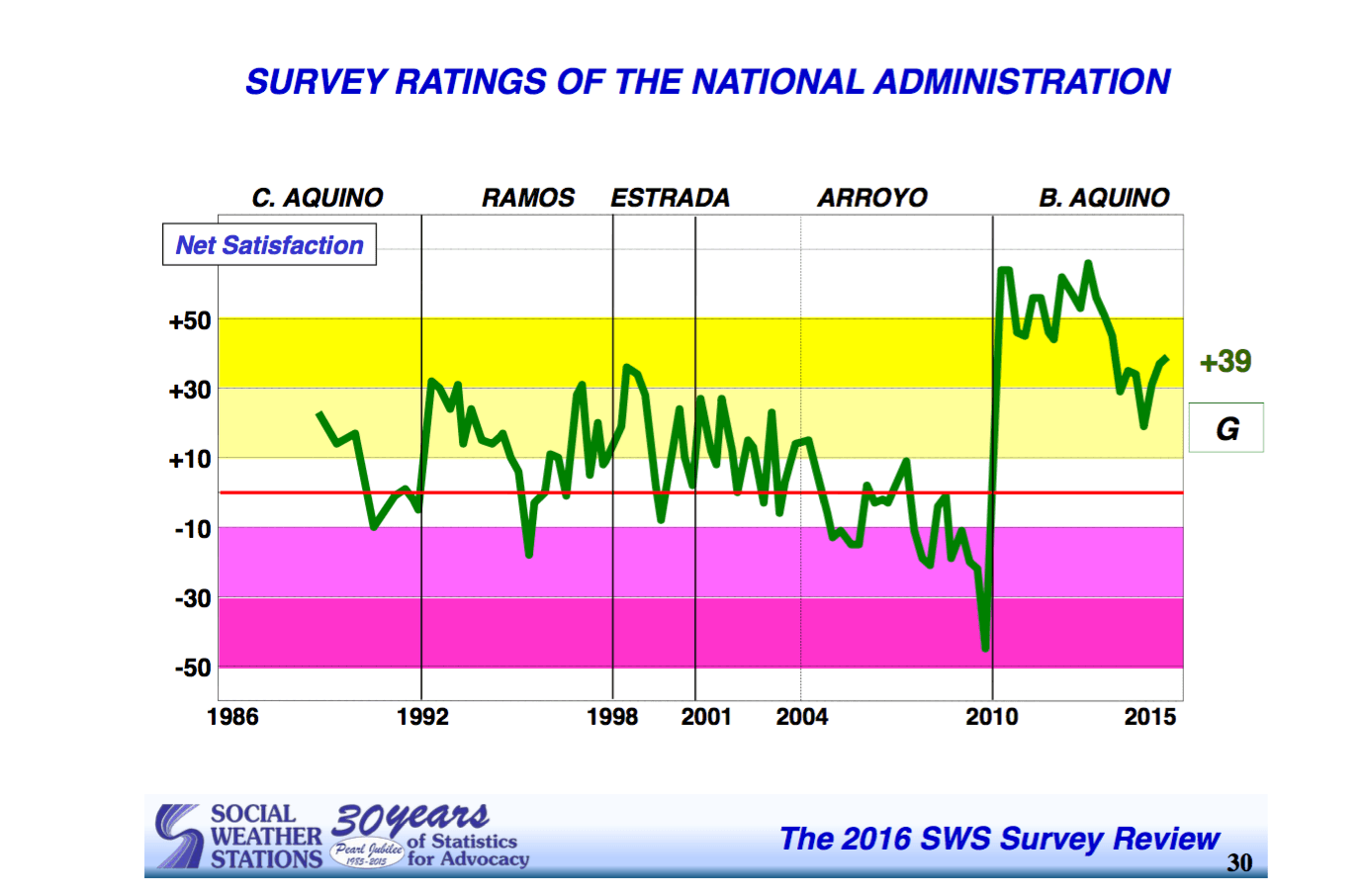
Seeming disconnect at the polls
This raises the question, asked by members of the audience: If public morale is so high and satisfaction with the administration is good, why then is its standard-bearer not doing as well as opposition candidates?
The latest SWS election survey shows Vice President Jejomar Binay and Francis Escudero topping the presidential and vice presidential polls, respectively. Administration candidates Manuel Roxas II and Leni Robredo placed third.
Mangahas said that part of this disconnect is down to research constraints.
“We’re doing a multi-purpose survey and only a few items can be about elections of course. And we have to be even handed. We are non-partial and If we focus too much on a particular issue it might look as if we are for or against a particular candidate because those might be the issues of a particular candidate,” he explained.
“If we had more funds and more freedom we could study each and every issue one by one,” he said.
Mangahas also explained that there are a lot of intangibles that go into it especially public awareness and the role the media plays.
“We have to have a deeper and wider monitoring of what is reaching people though the media especially TV in particular as not even 10% of the population reads newspapers even once a week,” he said.
The proper way to do a really in-depth electoral poll is to form something like a democratic initiative well-funded enough to be able to do polls that deeply examine each of the candidates, he said.
He also pointed out that the elections were still wide open, noting that survey results have shown different candidates in the lead at different times.
He cited the fact that back in 2010, Binay, who eventually won as vice president, trailed Roxas and Loren Legarda in the survey and only overtook Roxas in the beginning of May.
Trends from 2015
The review covered the findings from surveys from all of 2015, with the following highlights:
– Hunger and poverty continued to fall last year from previous years, although there was a slight uptick in involuntary hunger in the 3rd quarter
– The local business sector continues to see government corruption falling. The latest survey showing that 39% said most companies in their sector of business give bribes to win public sector contracts – a record low from the previous lowest level of 41% in 2012 and 2013.
– Trust in China has reached a new low with the vast majority of Filipinos worried about an armed conflict regarding the disputed Scarborough shoal.
–Trust in Pope Francis has risen to record levels, making him the most popular Pope ever in the Philippines. Trust in Pope Francis has fallen among Iglesia ni Cristo members, however.
– Public opinion on the peace process in Mindanao is still divided. 2015 surveys also show that public awareness of the Bangsamoro Basic Law is falling. – Rappler.com
Add a comment
How does this make you feel?
There are no comments yet. Add your comment to start the conversation.